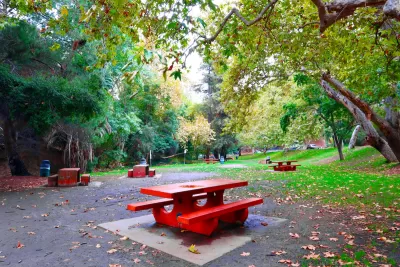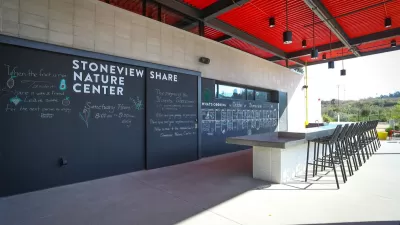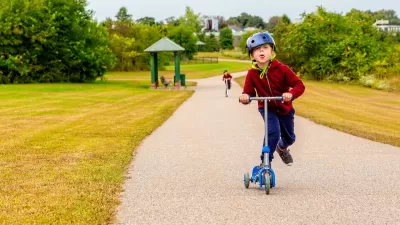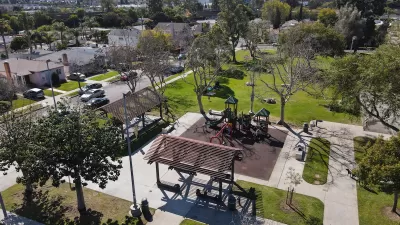Learn more about ways to improve park equity with Norma García-González, the director of the Los Angeles County Department of Parks and Recreation, and Catherine Nagel, the executive director of the City Parks Alliance.

How is park equity being advanced in Los Angeles County and in other cities across the country? This episode of Resources Radio, a weekly podcast from Resources for the Future, addresses this and other related questions. Specifically, host Margaret Walls interviews Norma García-González, the director of L.A. County's Department of Parks and Recreation (DPR), and Catherine Nagel, the executive director of the City Parks Alliance.
Some of the notable quotes include:
- Urban park systems are booming: “The fact is that in the last half-century, we’ve seen a growth in the urban population. So, the need for, and the number of, urban parks has grown, and there’s been a true renaissance of park-making that is doing so many things for cities beyond just providing the traditional recreation benefits.” —Nagel
- Community engagement can foster support for public parks: “We resoundingly heard how critical parks are and the need to create more parks, especially in communities of color and urban areas, as well as the critical importance of taking care of park infrastructure … There was a lot of critical data, but what really happened is we created this movement that was centered in community, and that really set the stage in our Park Needs Assessment to provide data that informed [a ballot initiative to fund public parks], which was resoundingly approved by the voters in Los Angeles County, receiving almost 75 percent of voter approval.” —García-González
- Some urban park systems are using data to inform more equitable decision-making: “[Some cities] were not just addressing [inequities], but they were using data to make the decisions about how they were going to use public budgets to address the needs of the communities that had really not been paid attention to for many years. We saw cities using data sets to look at, for example, air quality and what part of the city had high levels of pollution and asthma rates … That’s a very new approach to how a community can make a decision about its use and appropriation of public funds.” —Nagel
- There is a significant need to restore and heal degraded lands: “We have created a road map in Los Angeles County that not only looks at areas where we need to conserve park lands, public lands, but in areas where we need to restore and heal lands to support and to address deep environmental burdens that have come with toxicities and degraded lands. So, we have now gone beyond just building parks in high-need communities to thinking about using this data to heal land and to restore degraded lands as an environmental-restoration initiative for Los Angeles County.” —García-González
To listen and learn more, please go to the source link.
FULL STORY: Creating an Equitable Urban Park System, with Norma Garcia-Gonzalez and Catherine Nagel

Maui's Vacation Rental Debate Turns Ugly
Verbal attacks, misinformation campaigns and fistfights plague a high-stakes debate to convert thousands of vacation rentals into long-term housing.

Planetizen Federal Action Tracker
A weekly monitor of how Trump’s orders and actions are impacting planners and planning in America.

In Urban Planning, AI Prompting Could be the New Design Thinking
Creativity has long been key to great urban design. What if we see AI as our new creative partner?

How Trump's HUD Budget Proposal Would Harm Homelessness Response
Experts say the change to the HUD budget would make it more difficult to identify people who are homeless and connect them with services, and to prevent homelessness.

The Vast Potential of the Right-of-Way
One writer argues that the space between two building faces is the most important element of the built environment.

Florida Seniors Face Rising Homelessness Risk
High housing costs are pushing more seniors, many of them on a fixed income, into homelessness.
Urban Design for Planners 1: Software Tools
This six-course series explores essential urban design concepts using open source software and equips planners with the tools they need to participate fully in the urban design process.
Planning for Universal Design
Learn the tools for implementing Universal Design in planning regulations.
Gallatin County Department of Planning & Community Development
Heyer Gruel & Associates PA
JM Goldson LLC
City of Camden Redevelopment Agency
City of Astoria
Transportation Research & Education Center (TREC) at Portland State University
Jefferson Parish Government
Camden Redevelopment Agency
City of Claremont





























